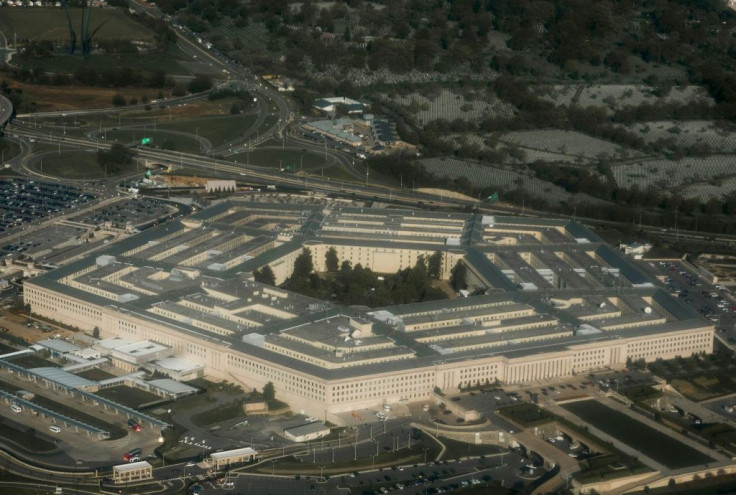Pentagon Boosting US Industrial Capacity Amid Virus Outbreak
The Pentagon is spending hundreds of millions of dollars on masks, tests and pharmaceutical products as it seeks to revive an industrial sector lost over the years to China.
To battle the coronavirus pandemic, the Defense Department has received one billion dollars under the Defense Production Act, which lets the federal government mobilize private industry to meet national security needs.
"The increased production will ensure the US government gets dedicated long term industrial capacity to help meet the needs of the nation," said Ellen Lord, undersecretary of defense for acquisition and sustainment.
"What I would like to see is the US have the capacity and throughput to take care of ourselves in times of need," Lord told reporters at a press conference on Thursday.
Lord acknowledged the US was overly dependent on China.
"We at this point have some national security issues with China," she said. "I think we have found that our dependency on China is more than we need it to be."
Several contracts have already been handed out, including one for $133 million to 3M, Honeywell and Owens & Minor to make N95 masks.
Those contracts, announced on April 20, will boost US production of N95 masks -- which are important health care protective equipment -- to 13 million a month.
Before the coronavirus crisis, China produced nearly half of the masks imported by the United States.

A company in Maine which makes nasal swabs -- which are often used in medical testing -- received a contract this week worth $75.5 million.
Puritan Medical will double production to 40 million units a month starting in May and the company, which currently has 500 employees, will hire 150 more, Lord said.
Outside of the Defense Production Act, the Pentagon has also been supplying hospitals and clinics with masks, gloves and ventilators.
The Pentagon gave a $450 million contract to Battelle, a non-profit research institute in Ohio, for units which sterilize N95 masks, allowing them to be reused up to 20 times.
Lord said the objective is to respond to immediate needs, rebuild strategic reserves and eventually have enough national production so the country will no longer have to rely on imports.
"We've learned that we've had fragility... on a number of fronts," Lord said. "We were overly dependent on foreign sources."
The United States remains heavily dependent on China and India, for example, for many of the ingredients needed to produce medicines.
"We still have the air bridge working to bring all kinds of medical resources back to the United States," Lord said. "We need to make sure that we have security and resiliency in our medical industrial base."
Lord said the Pentagon's involvement would hopefully only be temporary.
"We are there to support and provide our acquisition expertise," she said. "But we will stand down once we do have the capacity, the capability and the volume coming out of that industrial base for medical resources that we want to be robust and self-sustaining."
© Copyright AFP 2024. All rights reserved.





















